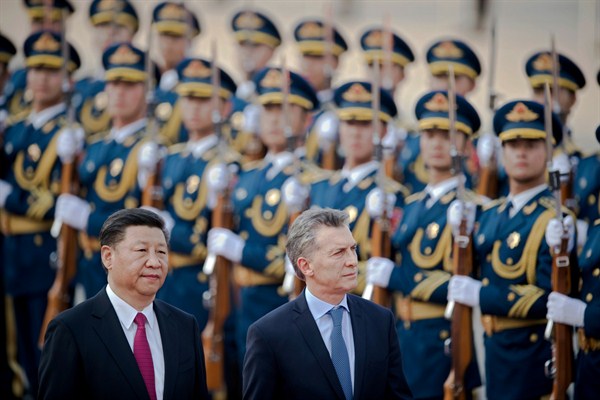Argentina’s president, Mauricio Macri, was in Beijing last week to attend China’s enormous One Belt, One Road summit and sign several agreements with his Chinese counterpart, Xi Jinping. Nearly 30 heads of state and senior representatives of at least 20 other countries attended the summit, where Chinese officials presented their vision for building massive infrastructure projects in many parts of the globe.
The agreements between Macri and Xi covered more than $30 billion of Chinese investments in Argentina on everything from energy and agriculture to transportation and mining, capped by a Chinese plan to build two nuclear power plants at a cost of $12.5 billion. In his third meeting with Xi in just the past 13 months, Macri called China a “strategic partner” and said he wants to be a reliable friend.
It was the culmination of a surprising shift, given that Macri campaigned in 2015 partly on getting tough with China. He criticized, among other deals, the decision of his predecessor, Cristina Fernandez de Kirchner, to borrow nearly $6 billion from Beijing to build two hydroelectric dams in remote and pristine Patagonia in southern Argentina, highlighting the dams’ environmental and social impact. He even expressed these concerns to the Chinese ambassador and told Argentines he would increase the transparency around the dam projects. But once he was in office, Macri capitulated. The two dams will still go through, only a bit smaller.

